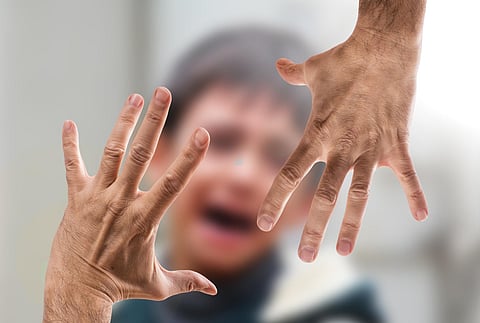

BENGALURU: A study by UNICEF shows there are 30 different forms of physical and verbal abuse that Indian parents use on children as young as 0 to 6 years as part of disciplining efforts.
The study 'Parenting Matters: Examining Parenting Approaches and Practices' conducted in two districts each in Madhya Pradesh, Chhattisgarh and Odisha, three districts in Rajasthan and four districts in Maharashtra in 2019 showed that, "Punishment, is a widely accepted method to discipline children for both boys and girls in families, schools and at the community level for both girls and boys."
Speaking on the release of the report, Yasmin Ali Haque, UNICEF Representative in India said, "The various forms of violence against children includes physical violence (burning; pinching; slapping; beating with implements like stick, belts, rods) verbal abuse (blaming; criticizing; shouting; use of foul language); witnessing physical violence (towards one parent; towards siblings; outside the family) and emotional abuse (restricting movement; denying food; discrimination; instilling fear)," she said.
During the pandemic like Ebola crisis, she said, "Our experience has showed that young children are more likely to experience violence, abuse and neglect as families struggle to cope, that could have a lifelong impact on them."
Under COVID-19, there is an immediate need to designate child protection services as essential services. The response must include provision of critical health and social welfare and child protection services, including mental health and psychosocial support, and alternative care arrangements. "These services should be available to all, including children and migrants, those without parents, to ensure the protection for the most vulnerable children," she explained.
The study also showed that girls and boys are raised very differently from a very early age – with the burden of household chores, day to day restrictions, difference in the kind of toys given being imposed more on girls
Mothers are the main caregivers for children while fathers are much less involved. However, the study found that in many cases they wanted to be involved but didn't know how to.
Awareness on positive parenting practices are relevant now more than ever to promote both mental and physical well-being of children. Supporting parents and caregivers to provide young children with nurturing care in times of crisis is essential,"the study found.
The UNICEF found that states like Maharashtra, Odisha, Chhattisgarh, Assam, Rajasthan and Uttar Pradesh are forerunners in implementing innovative parenting programmes, that other states can adopt.
With UNICEF support, parents, especially fathers, are being provided the information and skills to use material easily available in and around their homes. This has led to better and more parental engagement through storytelling, singing and playing with the child – all critical for a child’s brain development.
This is also being done through training of Anganwadi and ASHA workers, so they can use their existing platforms effectively for parent engagement such as through monthly parent meetings and home visits. States are also organizing community events to involve all parents and caregivers around the importance of Eat, Play and Love, such as Palak (caregiver) Mela, in Maharashtra.
UNICEF, together with partners, is also releasing several tools/resources/tips for parents to effectively engage with children on its website. In 2019, UNICEF reached with several community-based partners 1.2 million parents and caregivers with parenting programmes.
The study recommended building skills of frontline workers to better engage with caregivers. It also highlights the need for quality engagement of fathers in caregiving to support their child's development.